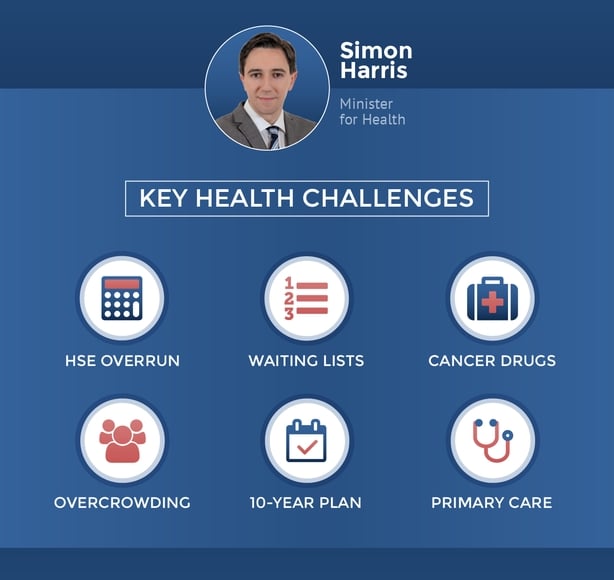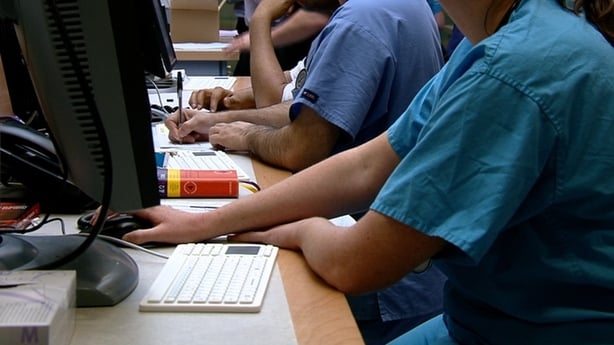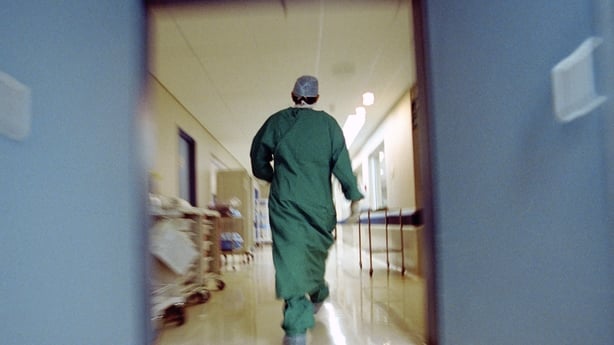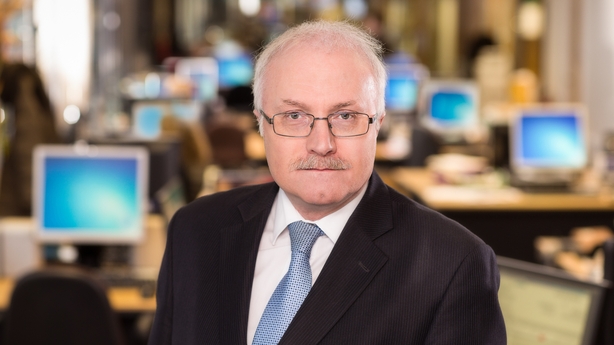The appointment of Simon Harris to the full Ministry of Health was a big surprise. At the age of 29, he faces an incredibly daunting challenge, writes RTÉ's Health Correspondent Fergal Bowers.
Many, of a much more mature age, have gone before him and floundered, so a youthful exuberance may just be what the portfolio needs.
We will get a sense of his early grasp of the portfolio when he attends his first Dáil health question time tomorrow.
Did Mr Harris ever see himself as a minister?
Well the story is told by a classmate of an occasion in school when the teacher asked all of the pupils to write down on a sheet of paper what they would like to be when they grew up.
When the teacher turned over Simon's paper, it said "Pope".
He certainly could do with all the divine intervention at the Department of Health to ease his path. It will be a miracle if he can get through his term unscathed.
Unlike his predecessor Leo Varadkar, Mr Harris had been relatively quiet in the media in the first few weeks of his appointment. His style is different.
No doubt he has been meeting organisations and absorbing his brief and we all got to read the Department of Health briefing papers for him, published recently, setting out the many challenges.

He faces problems on a series fronts:
- A potential HSE overrun by the end of the year of €600m.
- A staffing recruitment "pause" in the HSE.
- Hospital waiting lists at around 500,000 people.
- Demands for very expensive new high-tech life-saving or life extending cancer drugs to be made available. He has asked the HSE to look at this urgently this week.
- Also, staff recruitment and retention, especially of nurses and doctors.

The list is long.
As we enter the summer period, emergency department overcrowding traditionally eases somewhat, but as sure as night follows day, by the autumn and winter it will be back, unless a sound plan is in place to tackle it.
The aim of having an all-party committee look at a ten-year plan for health has potential but also pitfalls.
If it is an arena for fresh thinking and compromise, it may deliver a valuable strategy.
We have seen many health strategies before but without the life-support of funding, they wither and die.
The fear is that unions and other groups who attend the all-party meetings may go in to protect their slice of the health cake, along with seeking more staff and resources just for their own sector.
In fairness, protecting their members is what unions do.
We can already see a battleground between GPs and pharmacists over drug dispensing and health professionals trying to get a piece of rival health professionals' work.
It is likely that staff working in hospitals will fight to avoid any large proportion of their funding being diverted to primary care, which is the area the Programme for Government wants to develop.

So medical turf wars could hamper the development and broad support for any ten-year plan.
On the other hand, we might also be surprised.
The aim for the all-party group is that it will produce a report within six months of its first meeting. That is ambitious. Mr Harris faces significant obstacles.
The Programme for Government wants to continue dismantling the HSE. Fianna Fáil opposes this.
So in the new political climate there is a danger of stagnation in the health area.
If the all-party group is to be left to devise a medium- to long-term health plan, then the new minister's main work may be day-to-day fire fighting - dealing the unexpected things that emerge from the health service every so often.
Health is a vastly complex area with a budget of €14 billion and 100,000 staff.
Along with his department officials, Mr Harris will also need a strong special advisor who understands the minefields in health and a good press officer, who does not need much sleep.
A real test will be how he handles his first crisis. And of course the ones that follow.
By RTÉ's Health Correspondent Fergal Bowers

